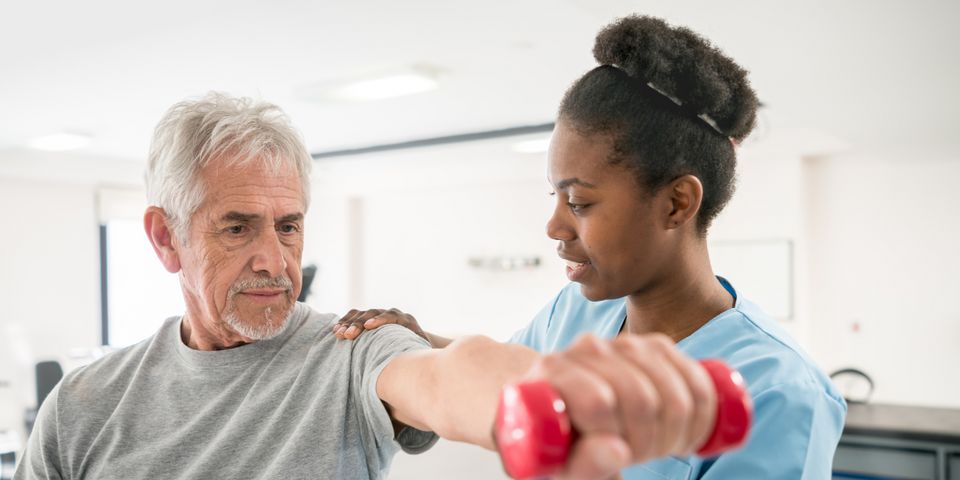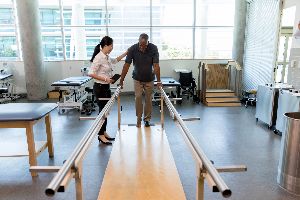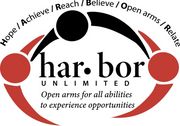
If blood stops flowing to the brain, a stroke occurs. Also known as a brain attack, this health issue causes brain cells to die and affect related functions, such as speaking and moving. If a loved one needs to undergo stroke rehabilitation, here's what you need to know.
FAQ About Strokes
What causes strokes?
A stroke event affects the brain in two main ways—ischemic and hemorrhagic. Ischemic strokes are the most common and happen when one of the brain’s major blood vessels becomes blocked. Reasons for blockages include fatty acid accumulation, blood clots, and cholesterol buildup. Hemorrhagic strokes occur when a brain blood vessel bursts, causing pressure to increase on nearby tissues. High blood pressure is the most common reason for this type of stroke. Without the oxygen and nutrients in the blood, brain cells start dying within minutes. The sooner an individual having a stroke receives medical attention, the better it will reduce serious damage.
What are the risk factors?

The risk of a stroke increases because of health issues such as high blood pressure. Hypertension damages blood vessels throughout the body, including those that send blood to the brain. Other risk factors include diabetes, as excessive sugar in the blood heightens the chance of blood clots. Stroke risk also increases because of health problems such as high cholesterol, tobacco and excessive alcohol use, obesity, abnormal heart rhythm, and heart disease.
What are the most common symptoms?
Symptoms vary by individual but can include facial drooping on one side, speech difficulties, the inability to raise both arms, vision issues, and coordination and balance challenges. Additional symptoms include problems walking and understanding others, and loss of vision. It is also possible for a stroke victim to faint, feel nauseous, start vomiting, experience seizures, or become confused. However, such symptoms are rare.
How are strokes treated?
As with symptoms, stroke rehabilitation is tailored to the person but can include taking anti-blood clot medication and neuroprotective medications that protect the brain from oxygen deprivation and damage. Medications and intravenous fluids may be used to reduce brain swelling or prevent further swelling. In severe cases, machines that regulate blood pressure and control breathing might be necessary. Surgery is another treatment for a severe stroke, such as surgery to relieve pressure on the brain or remove blood clots.
For stroke rehabilitation services, turn to HARBOR Unlimited in O’Fallon, MO. Serving St. Charles County and the surrounding areas. This organization offers a wide variety of events that can aid in stroke rehabilitation. Additionally, HARBOR Unlimited offers many other services to area families. Call the non-profit organization today at (314) 956-2665 to make an appointment or learn more about services online.
About the Business
Have a question? Ask the experts!
Send your question

